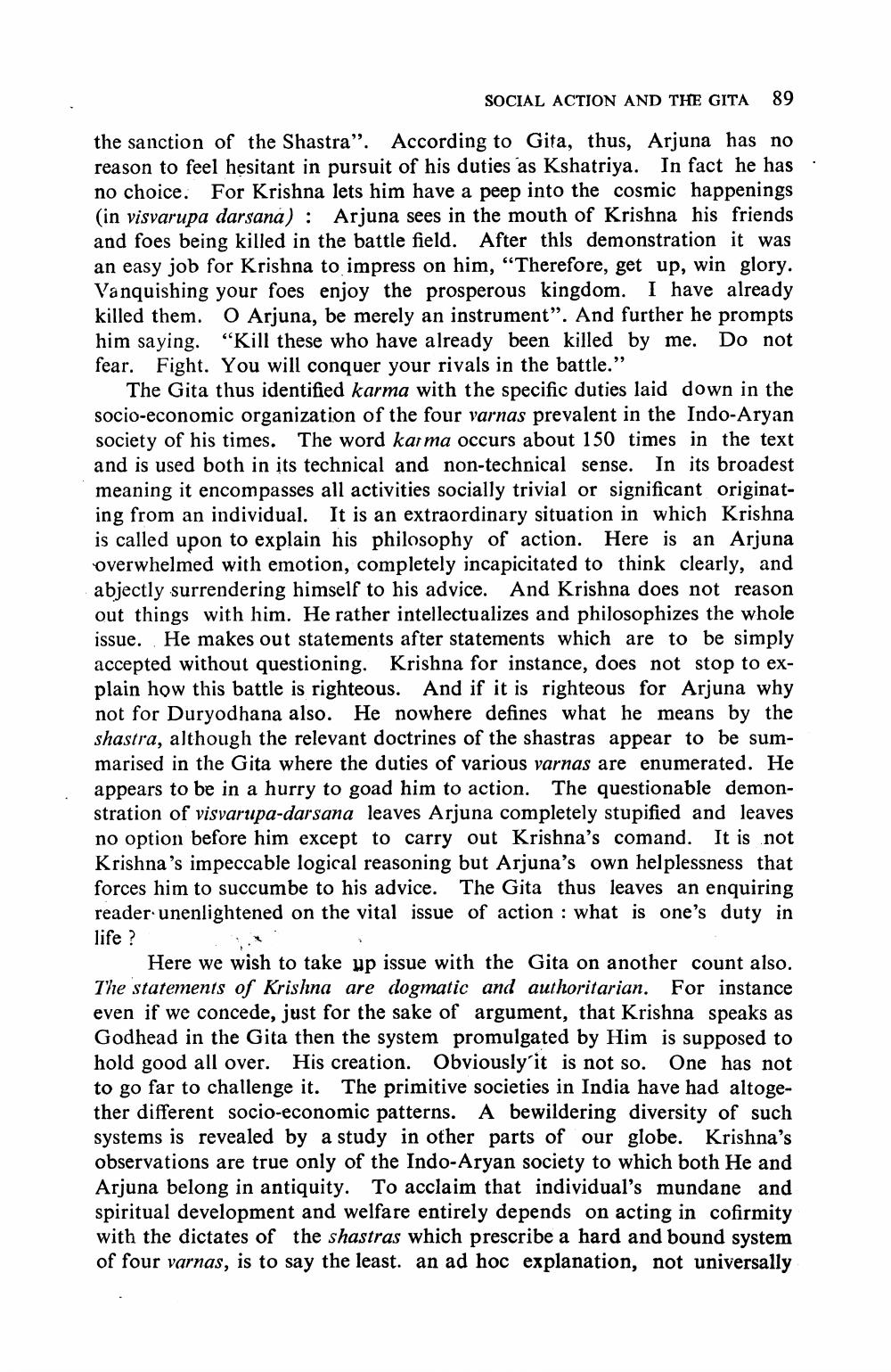________________
SOCIAL ACTION AND THE GITA 89
the sanction of the Shastra". According to Gita, thus, Arjuna has no reason to feel hesitant in pursuit of his duties as Kshatriya. In fact he has . no choice. For Krishna lets him have a peep into the cosmic happenings (in visvarupa darsana): Arjuna sees in the mouth of Krishna his friends and foes being killed in the battle field. After thls demonstration it was an easy job for Krishna to impress on him, "Therefore, get up, win glory. Vanquishing your foes enjoy the prosperous kingdom. I have already killed them. O Arjuna, be merely an instrument". And further he prompts him saying. “Kill these who have already been killed by me. Do not fear. Fight. You will conquer your rivals in the battle."
The Gita thus identified karma with the specific duties laid down in the socio-economic organization of the four varnas prevalent in the Indo-Aryan society of his times. The word kar ma occurs about 150 times in the text and is used both in its technical and non-technical sense. In its broadest meaning it encompasses all activities socially trivial or significant originating from an individual. It is an extraordinary situation in which Krishna is called upon to explain his philosophy of action. Here is an Arjuna overwhelmed with emotion, completely incapicitated to think clearly, and abjectly surrendering himself to his advice. And Krishna does not reason out things with him. He rather intellectualizes and philosophizes the whole issue. He makes out statements after statements which are to be simply accepted without questioning. Krishna for instance, does not stop to explain how this battle is righteous. And if it is righteous for Arjuna why not for Duryodhana also. He nowhere defines what he means by the shastra, although the relevant doctrines of the shastras appear to be summarised in the Gita where the duties of various varnas are enumerated. He appears to be in a hurry to goad him to action. The questionable demonstration of visvarupa-darsana leaves Arjuna completely stupified and leaves no option before him except to carry out Krishna's comand. It is not Krishna's impeccable logical reasoning but Arjuna's own helplessness that forces him to succumbe to his advice. The Gita thus leaves an enquiring reader unenlightened on the vital issue of action : what is one's duty in life?
Here we wish to take up issue with the Gita on another count also. The statements of Krishna are dogmatic and authoritarian. For instance even if we concede, just for the sake of argument, that Krishna speaks as Godhead in the Gita then the system promulgated by Him is supposed to hold good all over. His creation. Obviously it is not so. One has not to go far to challenge it. The primitive societies in India have had altogether different socio-economic patterns. A bewildering diversity of such systems is revealed by a study in other parts of our globe. Krishna's observations are true only of the Indo-Aryan society to which both He and Arjuna belong in antiquity. To acclaim that individual's mundane and spiritual development and welfare entirely depends on acting in cofirmity with the dictates of the shastras which prescribe a hard and bound system of four varnas, is to say the least. an ad hoc explanation, not universally




